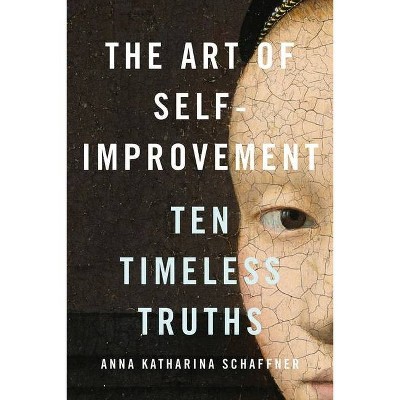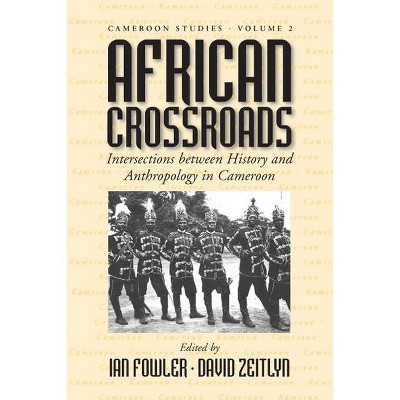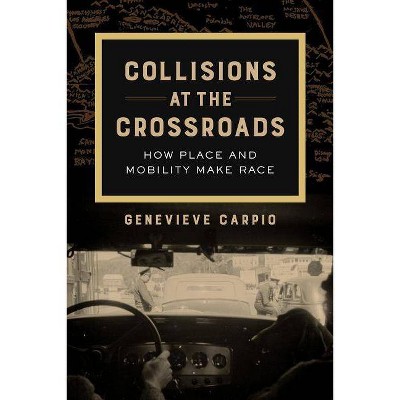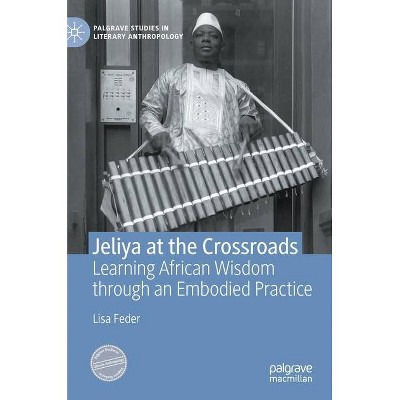Area Studies at the Crossroads - by Katja Mielke & Anna-Katharina Hornidge (Paperback)
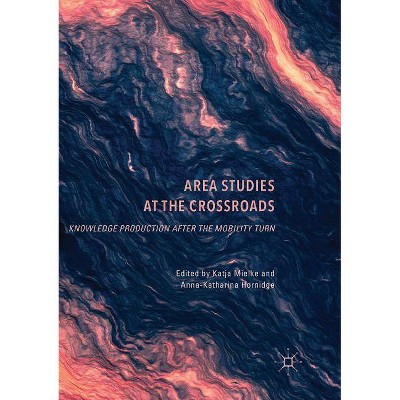
Similar Products
Products of same category from the store
AllProduct info
<p/><br></br><p><b> Book Synopsis </b></p></br></br><p><b>I Introduction: Area studies at the Crossroads </b></p> <p><b> </b></p> <p>1. From Spatial Containers to Studying the Mobile </p> <p>Anna-Katharina Hornidge & Katja Mielke </p> <p> </p> <p>2. Challenging spatialities of knowledge under globalisation: Strategic responses to the neoliberal university and its role in entrenching the global immobility of theory production </p> <p>Peter A. Jackson </p> <p><b> </b></p> <p><b>II To be or not to be is not the question. Rethinking Area Studies in its own right </b></p> <p></p> <p>3. Area studies @ Southeast Asia: Concepts and directions for an emerging field of regional science</p> <p>Christoph Antweiler</p> <p> </p> <p>4. Rethinking "Middle Eastern" Studies post-Arab revolts: Analytical and conceptual queries and propositions</p> <p>Ali Fathollah-Nejad</p> <p> </p> <p>5. Rethinking the Americas: Entanglement and (De-)Colonization of Space and Knowledge </p><p>Olaf Kaltmeier</p> <p> </p> <p>6. Are transregional studies the future of Area Studies?</p> <p>Matthias Middell</p> <p><b> </b></p> <p><b>III Mobility, immobility, and positionality in rethinking Area Studies</b></p> <p><b> </b></p> <p>7. The society of betweenness: Migration and identities of migrants as identities in motion</p> <p>Bianca Boteva-Richter</p> <p> </p> <p>8. Positionality at the crossroads: Gendered lifeworlds, social situatedness and the relational production of place in the context of student migration to Gilgit, Pakistan</p> <p>Andreas Benz</p> <p> </p> <p>9. Red lines for uncivilised trade?: Fixity, mobility and position on Almaty's changing bazaars</p> <p>Henryk Alff</p> <p> </p> <p>10. There and Back Again. Late German Repatriates at Eurasia's Crossroads</p> <p>Markus Kaiser & Michael Schoenhuth</p> <p> </p> <p>11. Social (im-)mobility at the margins of rural society in Punjab: Vartan bhanji-exchange practices and coping strategies</p> <p>Aftab Nasir</p> <p></p> <p>12. Margins or Center? Kokani Sufi Muslims between India and Arabastan</p> <p>Deepra Dandekar</p> <p><b> </b></p> <p><b>IV Theory-building from local empirical realities</b></p> <p><b> </b></p> <p>13. Developing mid-range concepts in "global ethnography" from researching development knowledge systems and systems of ignorance to translocal structuration of (gendered) fields and spaces</p> <p>Gudrun Lachenmann</p> <p> </p> <p>14. The social order concept: An invitation to non-normative ordering in research approaches to past and contemporary local politics</p> <p>Andreas Wilde & Katja Mielke</p> <p> </p> <p>15. Variants of differentiation in resources governance Khorezm, Uzbekistan: Is this a 'mid-range concept'?</p> <p>Anna-Katharina Hornidge</p> <p><b> </b></p> <b>V Deschooling academic society: Pedagogy, practice and policy</b><p></p> <p><b> </b></p> <p>16. The case for reconceptualising Southeast Asian Studies</p> <p>Cynthia Chou</p> <p> </p> <p>17. Positioning "Civilization blocs" within the Asia-Pacific region: Implications to the teaching of area studies in tertiary education in the Philippines</p> <p>Elizabeth T. Urgel & Philip Michael I. Paje</p> <p> </p> <p>18. "This area is [not] under quarantine" Rethinking Southeast Asian Studies with (new) media</p> <p>Arnika Fuhrmann</p> <p> </p> <p>19. Teaching to transgress: Crossroads Studies and adventures in (?)-disciplinarity</p> <p>Epifania Amoo-Adare<b></b></p><p/><br></br><p><b> From the Back Cover </b></p></br></br><p>In this pioneering volume, leading scholars from a diversity of backgrounds in the humanities, social sciences, and different area studies argue for a more differentiated and self-reflected role of area-based science in global knowledge production. Considering that the mobility of people, goods, and ideas make the world more complex and geographically fixed categories increasingly obsolete, the authors call for a reflection of this new dynamism in research, teaching, and theorizing. The book thus moves beyond the constructed divide between area studies and systematic disciplines and instead proposes methodological and conceptual ways for encouraging the integration of marginalized and often overseen epistemologies. Essays on the ontological, theoretical, and pedagogical dimension of area studies highlight how people's everyday practices of mobility challenge scholars, students, and practitioners of inter- and transdisciplinary area studies to transcend the cognitive boundaries that scholarly minds currently operate in.</p><p/><br></br><p><b> Review Quotes </b></p></br></br><br><p>"Area Studies at the Crossroads can be recommended for any scholars (and institutional libraries) working not only in Asian/ Southeast Studies but also area studies generally." (Paul Vickers, Connections, May 16, 2020)</p><br><p/><br></br><p><b> About the Author </b></p></br></br><p><b>Katja Mielke </b>(Dr. phil.) is Senior Researcher at the Germany-based think tank BICC, a peace and conflict research institute in Bonn. Trained in Social Sciences, East European, and Central Asian Studies, she was one of the initiators of the Germany-wide research network 'Crossroads Asia' for rethinking area studies. </p><p><b>Anna-Katharina Hornidge </b>(Dr. phil.) is Professor of Social Sciences at the University of Bremen, Germany, as well as Head of Department of Social Sciences and of the Working Group 'Development and Knowledge Sociology' at the Leibniz-Center for Tropical Marine Research (ZMT), Germany. Trained in Sociology and Southeast Asian Studies, she scientifically coordinated 'Crossroads Asia' from 2012 to 2014 and was responsible for designing the networks strategy for synthesizing the conducted research. Today, she remains part of the Executive Board of the network.</p><br/>
Price History
Price Archive shows prices from various stores, lets you see history and find the cheapest. There is no actual sale on the website. For all support, inquiry and suggestion messages communication@pricearchive.us

